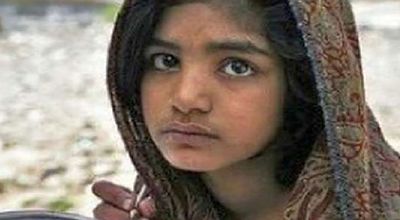Teen Pakistani Christian Released on Bail for Blasphemy Charges
A court has ordered that Rimsha Masih, the 14-year-old accused of blasphemy, is to be released into protective custody, on bail security of about $10,500.
It’s rare that bail is granted in a blasphemy case, partly for the defendant’s own safety, but Masih’s lawyers pleaded that she was a juvenile. The girl is expected to be released shortly, after which a further application will be made to drop all charges against her.
Robinson Asghar, aide to the Minister for National Harmony, told Reuters she is expected to re-join her family in a secret location. Asghar said there are no plans to send Masih abroad. Prosecution lawyers said this was a risk, as a result of the prominence the case has received in international media. Asghar’s boss, Minister Paul Bhatti, is closely concerned with the girl’s security after his brother Shahbaz, then himself Minister for Minorities, was shot dead in March 2011 for challenging the blasphemy laws.
Masih’s original accuser, her neighbor Malik Ammad, was supported by the local mosque leader, Khalid Jadoon. In Friday’s hearing, Ammad’s lawyers argued that Masih should not receive bail, as she had confessed. However, Pakistan’s leading daily Dawn reports that, on Wednesday, police interviewed Masih again for an hour, during which she is reported to have denied all charges.
The mosque leader has now been charged with blasphemy by planting pages of the Quran among burnt papers in Masih’s bags. He denies the charge, seen as desecration of the Quran, carrying a sentence of life imprisonment. He could also be convicted of falsely accusing a minor. Jadoon remains in custody until Sept. 16.
Human Rights Watch and civil society groups welcomed the decision. The Centre for Legal Aid, Assistance and Settlement, speaking to Open Doors News, hailed this as a landmark case.
Misah, resident in a sector of Islamabad, G12, where many poor Christian families live, was reported to police on Aug. 16 on the testimony of neighboring Muslims who accused her of carrying burned pages of Quranic verses. Her defense has argued she is too young to face blasphemy charges as an adult, and too mentally handicapped to even understand the concept of blasphemy.
Her case has taken several dramatic turns.
On Aug. 28 a medical report determined the girl to be 14 years old. Her attorneys considered the medical opinion to be powerful evidence that would persuade the court to shift Rimsha’s case to the juvenile courts, where potential penalties are less severe.
Instead, the court delayed a decision and agreed to a new medical exam at the insistence of lawyer representing Rimsha’s accuser. The lawyer hinted strongly that there would be violence if the girl were released on bail and her case transferred out of the adult court system:
“This girl is guilty,” said Rao Abdu Raheem, a lawyer for the man who has accused the girl of blasphemy against Islam. “If the state overrides the court, then God will get a person to do the job.”
One of the girl’s attorneys, Tahir Naveed Chaudhry, said Raheem’s remarks amounted to “an open threat.”
The most dramatic development yet occurred Sept. 2 when police, acting on information provided by members of a local mosque, arrested a Muslim cleric on suspicion of supplying Misah with the torn Quranic pages she was later accused of desecrating herself. The new twist forced yet another delay in a determination whether Rimsha would be released on bail.
Rimsha’s attorneys say she and her family never could return to their home, in the Mehrabad sector of Islamabad.
Misah’s arrest has prompted widespread international condemnation of Pakistan’s anti-blasphemy laws. Pakistan President Asif Ali Zardari has ordered an investigation, and has said the law must not be used to settle personal scores. Prominent Muslim clerics in Pakistan urged the courts not to rush to judgment under public pressure, though the law is widely popular among many ordinary Pakistanis.
The laws have been especially in the spotlight since a Christian mother-of-five, Asia Bibi, was sentenced to death in November 2010 for insulting the Islamic prophet Muhammad. She remains in prison.
In Jan. 2011, two months before the death of Shahbaz Bhatti, the powerful Governor of Punjab, Salman Taseer, was killed by his own bodyguard for publicly urging reform of the blasphemy laws. His assassination divided Pakistani opinion, with many hailing the bodyguard as a hero for what he’d done.














































